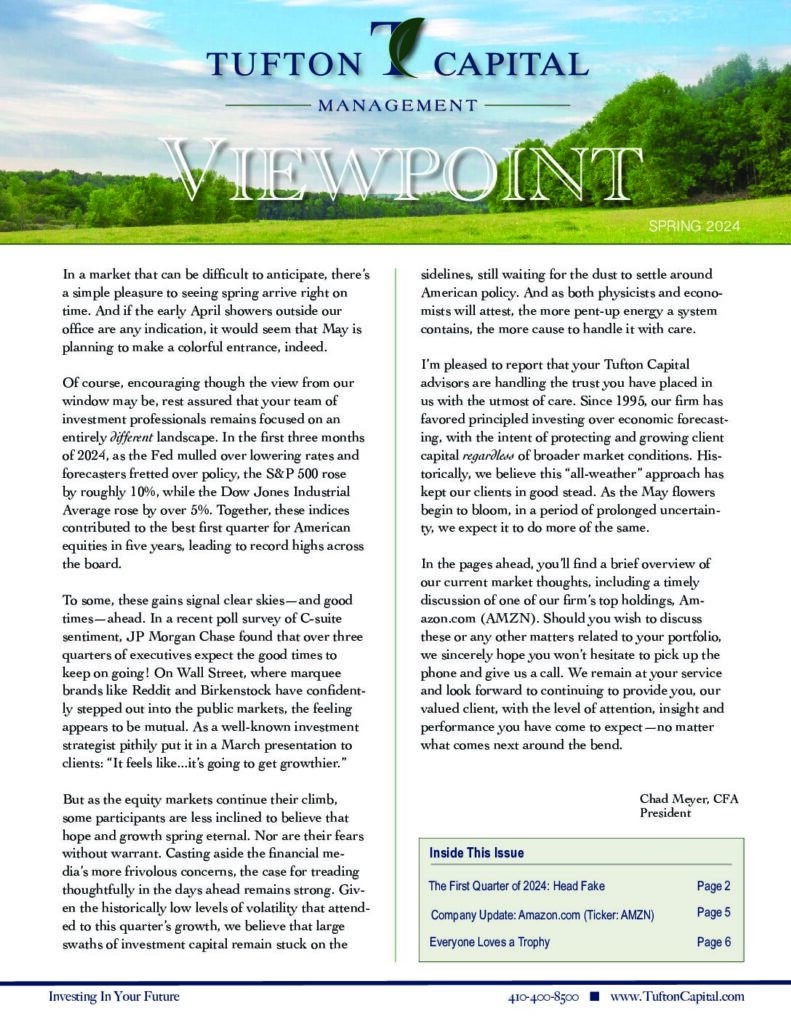The “Magic” of Compounding and Its Effects on Earnings
Compounding is often referred to as “magical” because of the way it can help your savings grow. While its power is impressive, the way it helps you is simple math, not magic.
Compounding simply refers to producing earnings off of your previous earnings. Each time your earnings are “compounded,” it means that the amount you have earned on your original investment (usually in the form of interest or dividends) has been added to your original investment, increasing both the principal and the amount that your principal can earn on its next earnings payment. With a savings account, you can usually choose to compound yearly, quarterly, monthly or even daily. With stocks, bonds or mutual funds, the most frequently you can compound may be monthly. When all other factors are equal, generally the more often you compound, the higher your earnings will be. The reason compounding gets so much fanfare (Albert Einstein reportedly called it “the eighth wonder of the world”) is that it can offer you exponentially increased earnings with minimal effort on your part.
Consider an example to see how your money can grow through compounding. Let’s say you invest $10,000 at age 28, with your investments compounded quarterly and earning an average rate of 7%. After 10 years, this account would be worth $20,016 more than twice its original balance. After 15 years, that number jumps to $28,318, and after 20 years, your original investment would more than quadruple and be worth $40,064. The exponential growth that compounding creates is the reason it has so much power in the financial world.
Compounding and Retirement
Compounding can help you increase your net earnings no matter how you save, be it in a regular savings account, a retirement plan or your taxable investment account. Using a qualified retirement plan makes your earnings from compounding even more effective because your earnings can grow either tax-deferred or tax-free. While taxes chip growth away when your portfolio is in a taxable account, retirement accounts allow your investments to grow unimpeded.
Start Early
If you are just starting to earn an income or have just opened your first retirement account, retirement can seem like a far-off concept that may never apply to you. However, the power of compounding makes it crucial to start saving at a young age. Even if you think you have years ahead of you to start saving, just a small contribution beginning at an early age can grow to a large nest egg by the time you start taking retirement withdrawals. Time may be your greatest asset, and failing to save now will mean you’ll have to contribute much more later just to gain the same net savings.
Consider the example from the previous section. If you started saving at age 28, you would eventually end up with over $40,000 by age 48. However, to end up with the same total savings at age 48, you would only need to contribute $5,740 if you started at age 20. And, if you contributed the same capital of $10,000 at age 20, your net savings at age 48 would be almost $70,000.
Continue to Contribute
Contribute to your retirement account regularly and from each paycheck if feasible. These additions to your retirement account, added with the power of compounding, can help your account grow even faster.
For example, if you made that initial investment of $10,000 at age 28 and then continued to contribute just $50 per month, instead of having $40,064 after 20 years, you would have nearly $65,000. If you automate your contributions from your paycheck and are paid twice a month, losing just $25 per paycheck would eventually help you save almost an additional $25,000.
Be Patient
Compounding only works if you allow your investments to grow. Taking the earnings from your investments rather than reinvesting them will defeat the purpose. Although the results may seem slow at first, they grow with time. If you have automated contributions set up, one of the best things you can do to allow compounding to work is to forget about it. Giving compounding time to happen can put your money to work for you, allowing you to take advantage of bigger earnings when you choose to retire.



